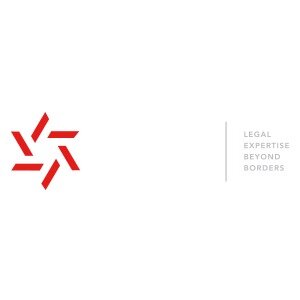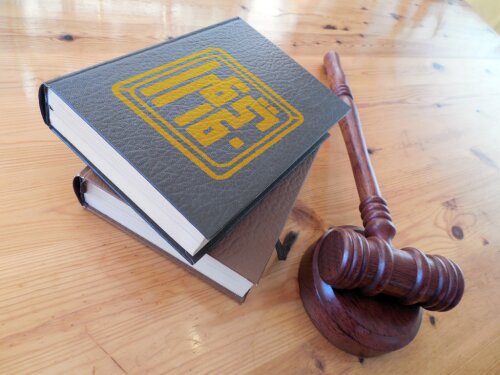Best Restructuring & Insolvency Lawyers in Qatar
Share your needs with us, get contacted by law firms.
Free. Takes 2 min.
Or refine your search by selecting a city:
List of the best lawyers in Qatar
About Restructuring & Insolvency Law in Qatar
Restructuring and insolvency law in Qatar is designed to provide structured legal solutions for financially distressed companies, creditors, and other stakeholders. As Qatar’s economy grows and diversifies, businesses may sometimes face economic challenges that require formal or informal processes to address debts and maintain operations. The legal framework in Qatar allows for company restructuring, liquidation, and other mechanisms designed to resolve insolvency while protecting the interests of both debtors and creditors, and encouraging stability in the financial and business community.
Why You May Need a Lawyer
Legal representation is crucial in restructuring and insolvency matters due to the complexity and potential consequences of such proceedings. You may need a lawyer if you are:
- A business owner or director facing financial hardship and considering restructuring or liquidation
- A creditor seeking to recover debts from an insolvent company
- An investor or partner in a company undergoing financial distress
- A supplier or contractor affected by a client's insolvency
- Involved in cross-border transactions where Qatari and foreign insolvency laws may apply
- Uncertain regarding your legal rights and obligations during insolvency proceedings
Lawyers can provide invaluable guidance on local laws, represent your interests during negotiations or court proceedings, and help you navigate complex legal processes effectively.
Local Laws Overview
Qatar’s restructuring and insolvency laws have undergone significant reforms in recent years. The primary legislation governing these matters is the Qatari Commercial Companies Law, alongside provisions in the Qatari Civil and Commercial Procedure Law. For companies operating within the Qatar Financial Centre (QFC), the QFC Insolvency Regulations offer a separate regime tailored to international financial standards.
Key features of insolvency laws in Qatar include:
- Clear criteria for when a company is deemed insolvent or unable to meet its financial obligations
- Formal court procedures for initiating insolvency or restructuring
- Options for reorganization or liquidation, including creditor arrangements
- Oversight by court-appointed administrators or liquidators
- Provisions for protecting creditors’ rights and the priority of payments
- Specific regulations for cross-border insolvency cases, especially in the QFC
Understanding these laws is essential to making informed decisions, protecting your assets, and minimizing risks.
Frequently Asked Questions
What is insolvency?
Insolvency occurs when a business or individual is unable to pay their debts as they become due. It can lead to formal legal procedures aimed at resolving the financial situation, either through restructuring or liquidation.
What is restructuring?
Restructuring involves reorganizing the financial or operational aspects of a company to address financial difficulties, often seeking to avoid insolvency or liquidation. This may include renegotiating debts, securing new financing, or altering the company’s structure.
Who can initiate insolvency proceedings in Qatar?
Insolvency proceedings can be initiated by the company itself, its creditors, or sometimes by regulatory authorities, depending on the type of entity and the specific circumstances.
What are the stages of insolvency proceedings?
The main stages typically include filing a petition, court assessment, appointment of an administrator or liquidator, asset evaluation, creditor claims assessment, and the eventual distribution of assets or implementation of a restructuring plan.
How are creditors paid in insolvency?
Creditor claims are usually ranked according to legal priority. Secured creditors are paid first, followed by preferential creditors (such as employees), then unsecured creditors, and lastly shareholders if any assets remain.
Is it possible to avoid liquidation once insolvency has begun?
Yes, a company may avoid liquidation by successfully negotiating a restructuring plan or settlement with creditors, provided the court approves and relevant legal requirements are met.
What is the role of a court-appointed administrator or liquidator?
An administrator or liquidator is appointed by the court to manage the insolvent company, evaluate assets, handle creditor claims, and ensure compliance with legal duties during the process.
Are there different laws in the Qatar Financial Centre?
Yes, the QFC has its own insolvency regulations, which are based on international standards and may differ from the laws that apply to businesses outside the QFC.
Can individuals file for insolvency in Qatar?
While most insolvency proceedings focus on companies, individuals engaged in business activities may also access certain insolvency and bankruptcy processes under the law.
Can foreign creditors participate in Qatari insolvency proceedings?
Foreign creditors can participate, but they must comply with court procedures and documentation requirements. The court will address claims from both domestic and international parties according to legal priorities.
Additional Resources
If you are seeking more information or assistance regarding restructuring and insolvency in Qatar, consider contacting or consulting the following:
- Ministry of Commerce and Industry - for guidance on business and company regulations
- Qatar Financial Centre Authority - for companies operating within the QFC
- Qatari courts (Civil and Commercial Court) - for formal proceedings and case filings
- Licensed legal practitioners specializing in insolvency and restructuring
- Business support organizations and trade associations
These resources can provide valuable support and direct you to qualified professionals experienced in handling insolvency matters in Qatar.
Next Steps
If you are facing financial difficulties or are concerned about potential insolvency, it is important to act promptly. Consider the following steps:
- Gather all relevant financial and legal documents related to your situation
- Conduct an internal assessment or consultation with your financial advisors
- Seek early legal advice from a qualified restructuring and insolvency lawyer in Qatar
- Discuss the available options and potential outcomes with your lawyer
- Follow legal procedures and court requirements carefully when initiating or responding to proceedings
Taking timely action and working with professionals can help you navigate the complexities of restructuring and insolvency law in Qatar, protect your interests, and reach the best possible resolution.
Lawzana helps you find the best lawyers and law firms in Qatar through a curated and pre-screened list of qualified legal professionals. Our platform offers rankings and detailed profiles of attorneys and law firms, allowing you to compare based on practice areas, including Restructuring & Insolvency, experience, and client feedback.
Each profile includes a description of the firm's areas of practice, client reviews, team members and partners, year of establishment, spoken languages, office locations, contact information, social media presence, and any published articles or resources. Most firms on our platform speak English and are experienced in both local and international legal matters.
Get a quote from top-rated law firms in Qatar — quickly, securely, and without unnecessary hassle.
Disclaimer:
The information provided on this page is for general informational purposes only and does not constitute legal advice. While we strive to ensure the accuracy and relevance of the content, legal information may change over time, and interpretations of the law can vary. You should always consult with a qualified legal professional for advice specific to your situation.
We disclaim all liability for actions taken or not taken based on the content of this page. If you believe any information is incorrect or outdated, please contact us, and we will review and update it where appropriate.
Browse restructuring & insolvency law firms by city in Qatar
Refine your search by selecting a city.
















